Fathers and sons, football and family. They don’t always fit together neatly but I still remember travelling to Old Trafford for the launch of a new book by Eric Harrison, the Manchester United scout and coach who unearthed so many pearls for the club throughout the 1990s and beyond.
The Neville brothers, Gary and Phil, were there. As were Paul Scholes, Peter Schmeichel, Nicky Butt, and, most famously at the time, David Beckham, along with a string of endorsements from stellar figures such as Alex Ferguson, who described his confrere Harrison’s contribution to the football world as “incredible” and “enduring”.
When I spoke to the recipient of these words, he looked embarrassed but then told me about how he and Ferguson had made sure that Beckham, the young Essex lad who was horribly homesick and often cried himself to sleep in his early months at United, was properly looked after, even as he practiced free kicks endlessly in the pouring rain.
He knows what makes people tick
“The thing about Alex is that these players are all his responsibility and if they show the right attitude, he will respect that and treat them the same way,” said Harrison.
“A lot of people have this idea that all he does is shout at the lads, but it couldn’t be further from the truth.
“He hasn’t become the best manager in the world without learning how to get the best out of people and understanding what makes them tick.”
And nowhere does this relationship work better than in the case of Cristiano Ronaldo.
When the Portuguese prodigy signed for United in 2003, his transfer fee of £12.24m made him, at the time, the most expensive teenager in English football history.
But it was never just about the money. Yes, Ronaldo was bestowed the No 7 shirt that had been worn by such luminaries as George Best and Eric Cantona, but it was his mesmerising trickery and joie de vivre at dancing around rivals and sparking terror in opposition defences that rapidly established him as a hero of the Stretford End.
Georgie boy himself said: “There have been a few players described as ‘the new George Best’ over the years, but this is the first time that it has been a compliment to me.”
And although some accused the wunderkind of occasionally being a show pony, Ferguson, the gruff, gimlet-eyed Glaswegian, was as thrilled as everybody else by the performances and panache of his new recruit as he adapted to the spotlight.
A mutual respect between them
From the outset, he declared that Ronaldo was “one of the most exciting young players” he had ever seen.
And he has never wavered in that opinion during the last 18 years, which is the one of the main reasons why the veteran has now returned to Old Trafford.
Ferguson, for all his reputation as being a take-no-prisoners, ticking time-bomb of volcanic tantrums at under-achieving players, has always been a more complex and compelling figure than any caricature might suggest.
As he was growing up in the shipyards of Glasgow, he saw many talented lives devastated or destroyed, either by unsafe employment practices amid the absence of health and safety regulations in the Clyde yards or men slipping into an alcoholic haze that consumed them and spat them out for the undertaker.
Fergie was there for the youngster
Ronaldo’s own father, Jose, died from an alcohol-related liver condition at the age of 52, in September 2005, when his son was still only 20, but although he was understandably devastated at the loss, there was a surrogate figure waiting in the wings.
Indeed, he has spoken of how Ferguson, the redoubtable character who grew up in a tough school and brought unprecedented success to Aberdeen in the early 1980s before moving to United and reviving the fallen giants, was pivotal to his decision to make the move from his homeland into the alien environment of England.
He recalled: “He was the key to me moving to Manchester in the first place. We had a quick chat when Sporting played them and he said to me: ‘Listen, I am interested in you and I want you to join us’. He is an unbelievable person and he treated me so well.
“As I’ve said many times, he is like a father to me in football and I have to appreciate everything that he did for me.
“I spent six seasons at United and I won many titles, both collectively and individually, and he taught me so much, not just about football, but about becoming a better person.
The key moment between Alex Ferguson and Ronaldo
“The thing I remember most is the time that my father was sick in hospital and it was a tough moment in the season because we had a lot of important matches coming up in both the (Premier) League and the Champions League.
“So I told him: ‘Coach, I need to go and see my daddy’. And he just told me: ‘Listen, your family is the most important thing that you have in your life. So, if you want to go for three days, four days, five days, of course you can go.
“That was one of the most important moments in my life. And, ever since, I have kept it in my mind. This is why I respect him and, for me, he is the best coach I ever had.”
The admiration between both parties has never been in question, despite the differences in their upbringings, ages and lifestyles.
From the outset, Ferguson defended his player from scything challenges on the pitch and critical barbs off it.
He was the complete player
In his mind, he had persuaded the young player to pledge his allegiance to United. And that was a pact that wouldn’t be broken – even when Ronaldo departed to join Real Madrid in the summer of 2009 for a then-world-record transfer fee of £80m.
As Ferguson said: “In the six years we had him, you just saw his game grow all the time, and he was a fantastic player.
“Now you can see he is the complete player. His decision-making, his maturity, his experience, plus all the great skills he has got, they all come together to make him the complete player.”
One of Ferguson’s central tenets has always been: “At the end of the day, the bus goes on and we don’t wait for anybody”, but sometimes he has tolerated idiosyncrasies, as in the case of Ronaldo (and Cantona), if he considered them to possess special gifts.
All the while, his man-management skills were based on the same convictions that made him a potent shop steward in his youth.
“I am careful of the players I lay into,” he once said. “Some can’t handle it. There are some I don’t look in the eye during a team talk because I know that I am putting them under pressure.”
But, above all – and this applies to Ronaldo in particular – he appreciates the importance of having an ingrained work ethic, of offering 100% for your club and your supporters and realising that nobody is bigger or more important than the fan base.
It might be the case that this return to his roots doesn’t prove a success for the 36-year-old Ronaldo.
Graeme Souness, for one, was sceptical about the move in his column in a Sunday newspaper and, as he rightly proclaimed, nobody can turn back the clock.
Even as we speak, the likes of Roger Federer, Serena Williams, Lionel Messi and Mo Farah are discovering that harsh reality in their different pursuits.
Ferguson backed his man to the hilt
But Ferguson has pulled a masterstroke and dashed the hopes of the “noisy neighbours” at Manchester City, who were also briefly linked to signing Ronaldo.
Now, it remains to be seen if the sorcerer and his apprentice can orchestrate fresh magic together in the twilight years.
But one thing we do know: Going gentle into that good night does not feature in Ferguson or Ronaldo’s nature.
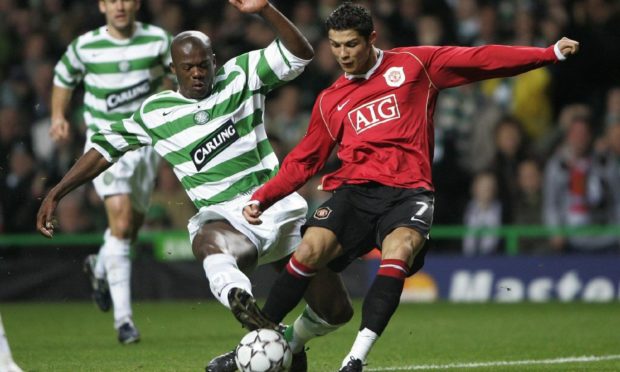
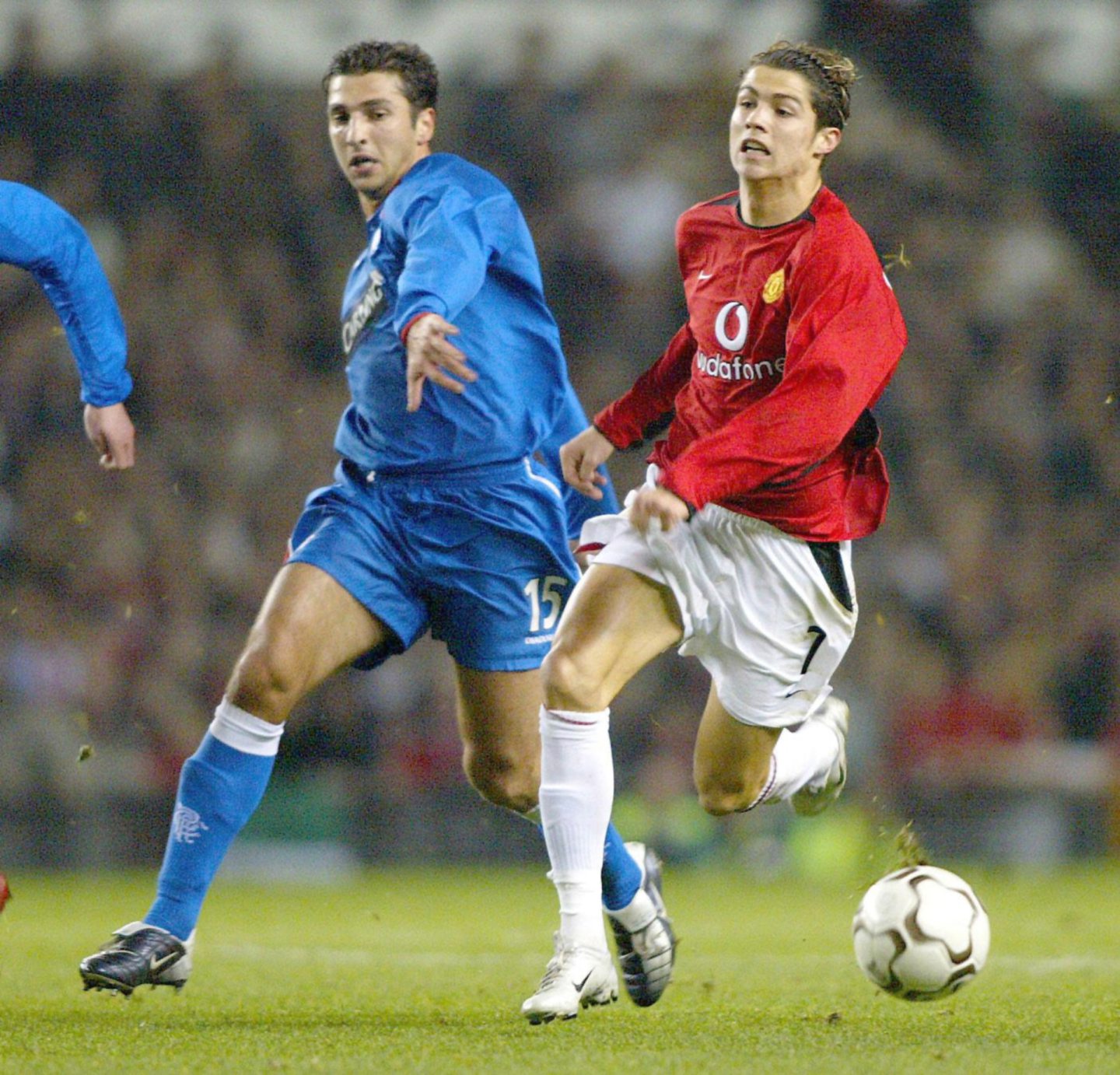
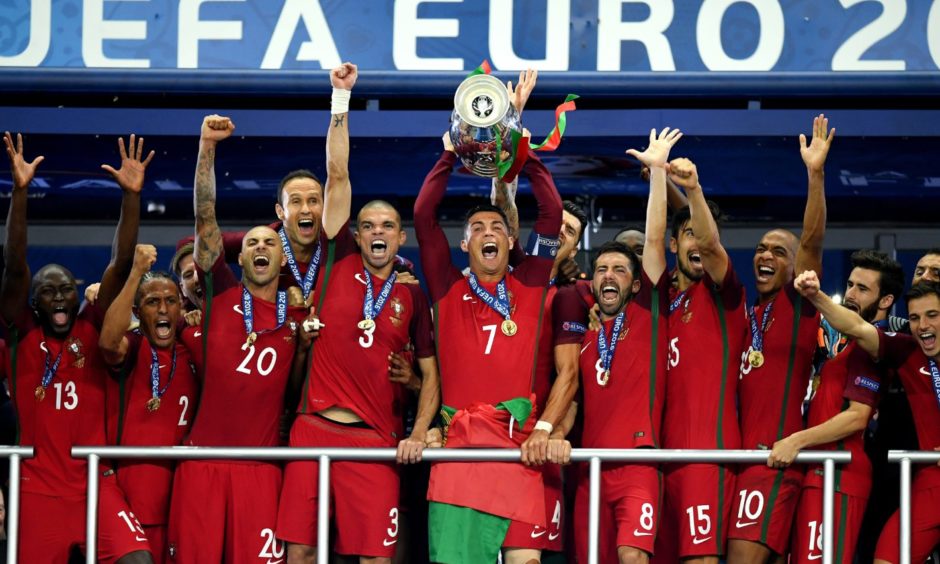
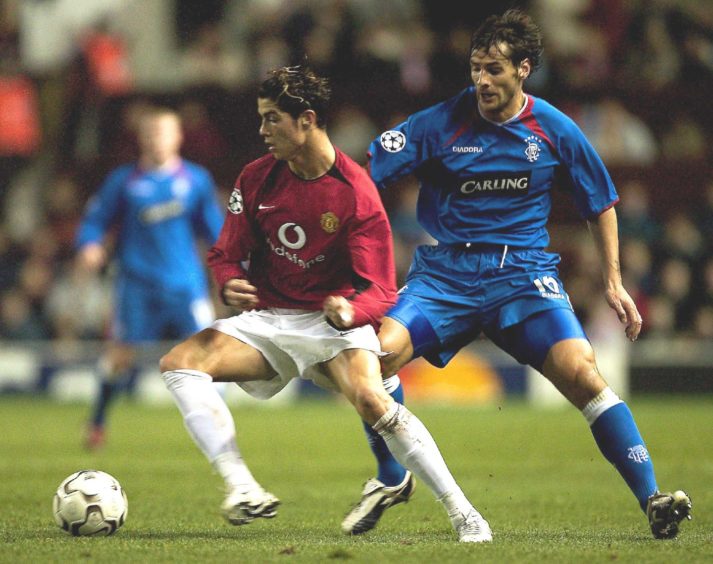
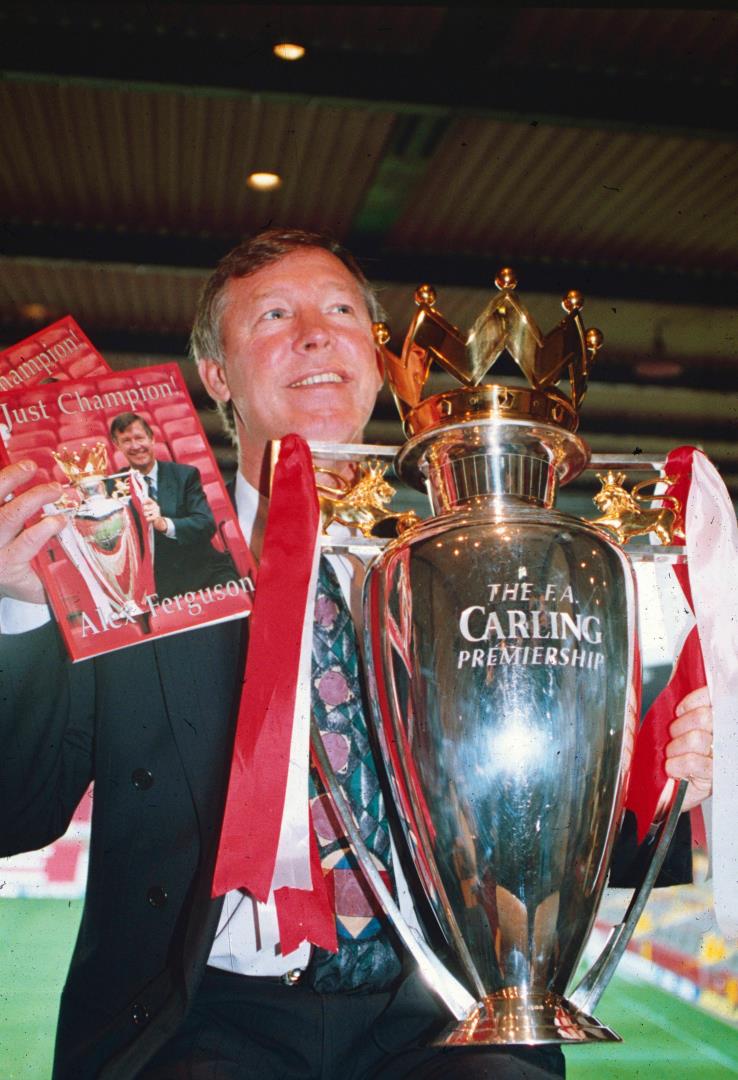
Conversation